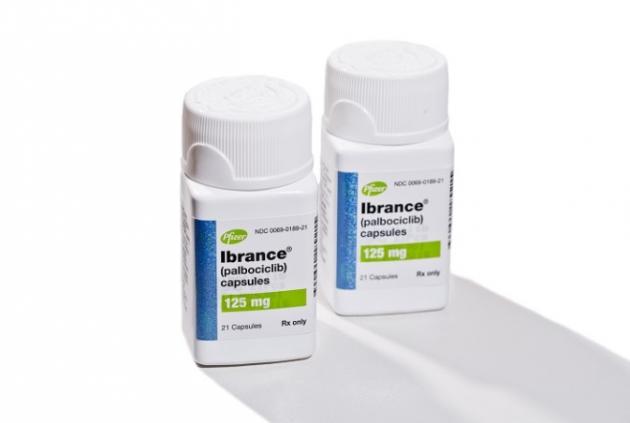Pfizer has come under fire in Korea, as a group of breast cancer patients criticizes the U.S. pharmaceutical giant for discriminating against Korean consumers compared with their foreign counterparts, including Britons, industry sources said Wednesday.
For example, Pfizer is reportedly distributing their breast cancer drug Ibrance입랜스 (compound: palbociclib) to patients in the United Kingdom by entirely covering their costs for up to five months, while refusing to provide similar benefits for Korean patients, they noted.

Ibrance is for women with hormone-positive, HER2 negative breast cancer that has spread around the body and which has previously not been treated. Oncologists have hailed it as one of the most significant advances in the past 20 years.
For one year’s treatment, Ibrance has six cycles, with one cycle lasting three weeks and each cycle costing up to 5.5 million won ($4,900) a month. The government decided not to offer insurance coverage for it on June 9, questioning the expensive drug’s cost-effectiveness. Without insurance coverage, patients would have to pay 210,000 won ($187.40) for one pill.
Earlier this year, regulators at the National Health Service (NHS) in England and Wales also ruled that Pfizer's Ibrance is too costly concerning its benefits as a treatment for breast cancer to be funded by the health service.
At first, Pfizer U.K. offered each cycle for 4.2 million won ($3,670) a month. When the proposal was rejected, however, the company said it would provide Ibrance free of charge for up to five months for breast cancer-ridden women until a final decision is made by the National Institute for Health and Care Excellence (NICE) on its use in the NHS. Pfizer has even promised to continue supplying the drug even if NICE rules that it is not cost-effective.
Pfizer Korea한국화이자 has also announced that regardless of the Korean government’s decision, it will start a program from June 12 to offer a 30-percent refund of the prescription costs for patients, and will try to negotiate with the government again by the end of this year.
Unsatisfied with the company’s response, however, the Korean patients’ group is criticizing the U.S. drugmaker for discriminating against Korean consumers.
"Pfizer Korea has not implemented a patient support program in the past, and has caused lots of pain to Korean people due to the price of the drug that is different from that of the U.K.," said a group member who wanted to stay anonymous. “Pfizer Korea is discriminating against Koreans.”

